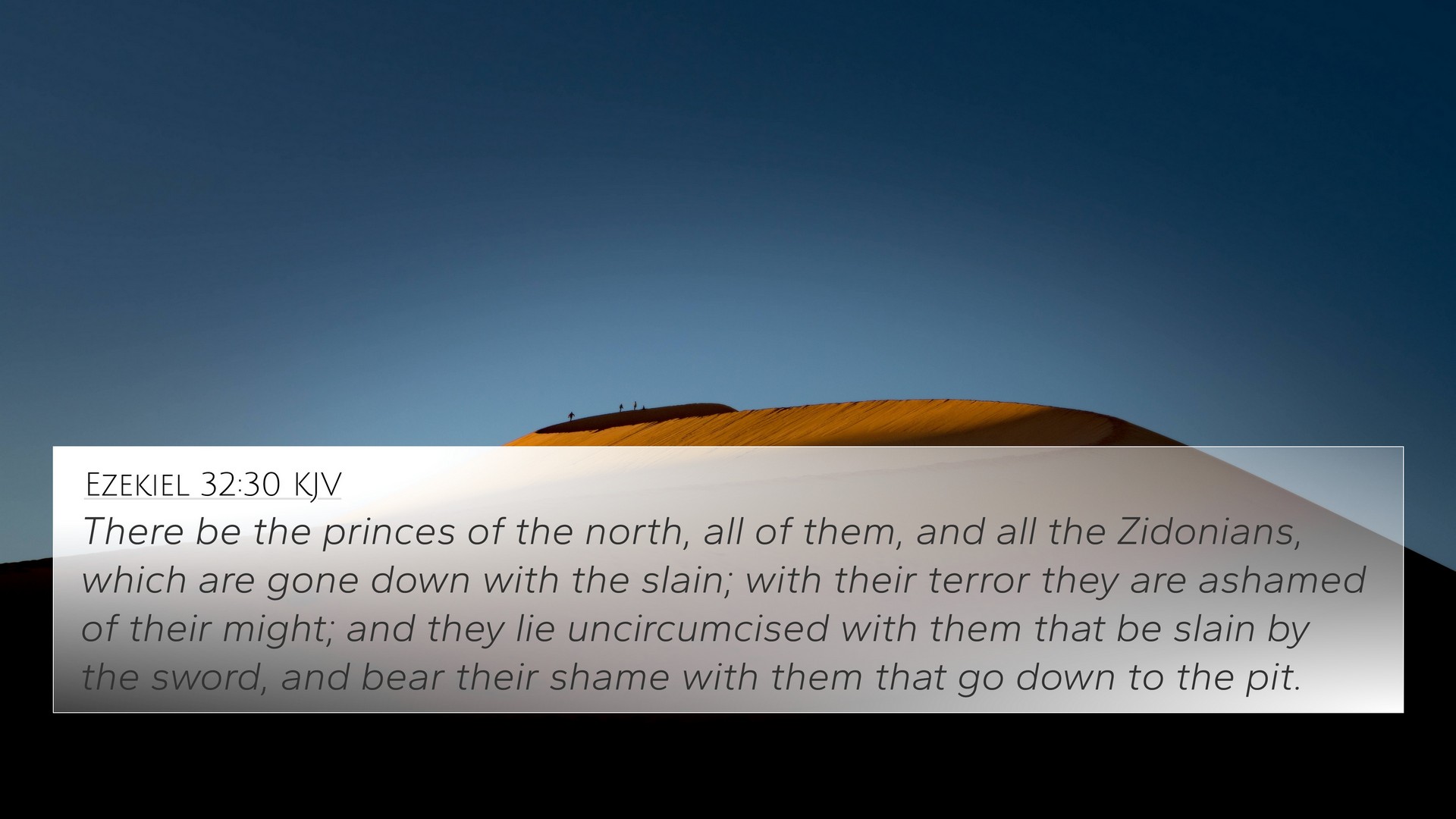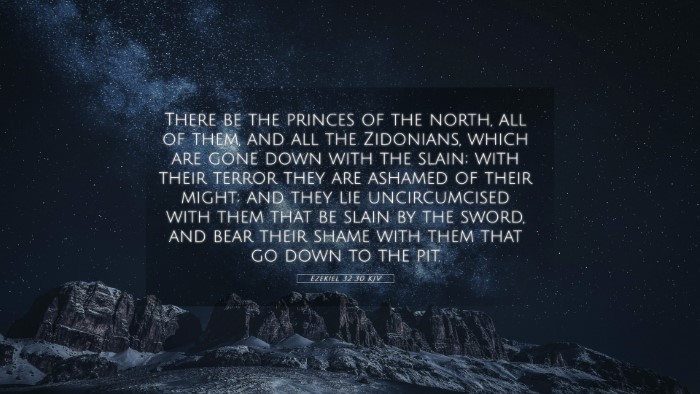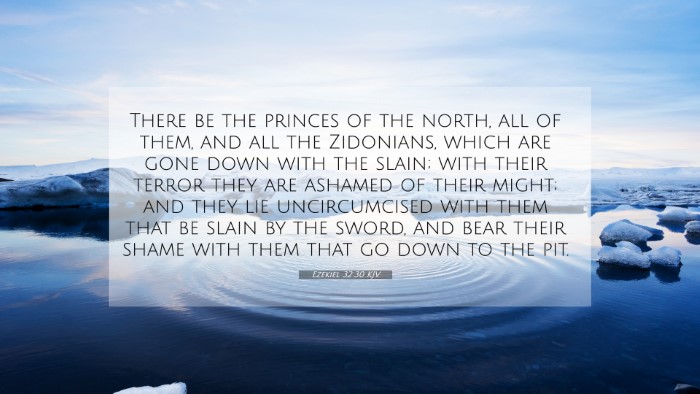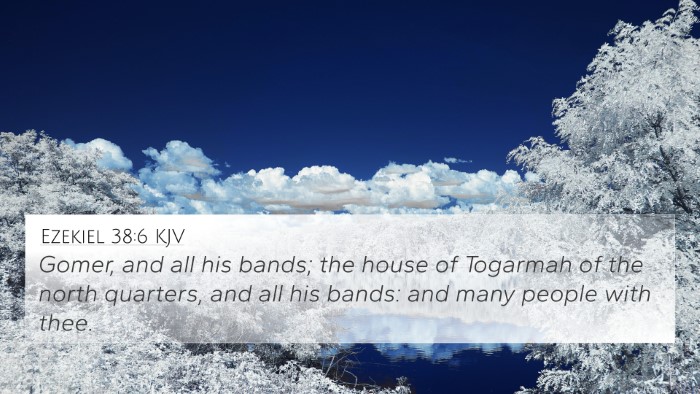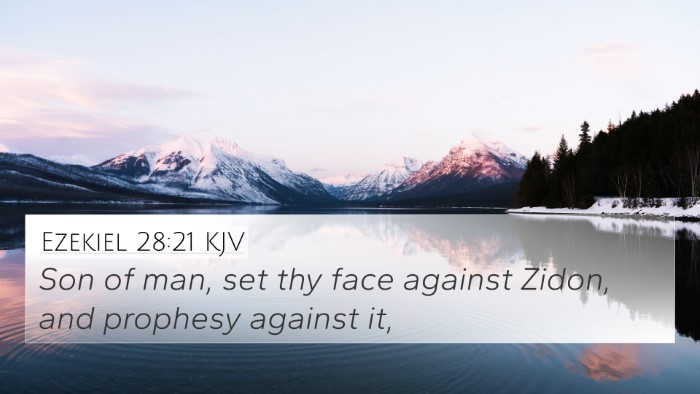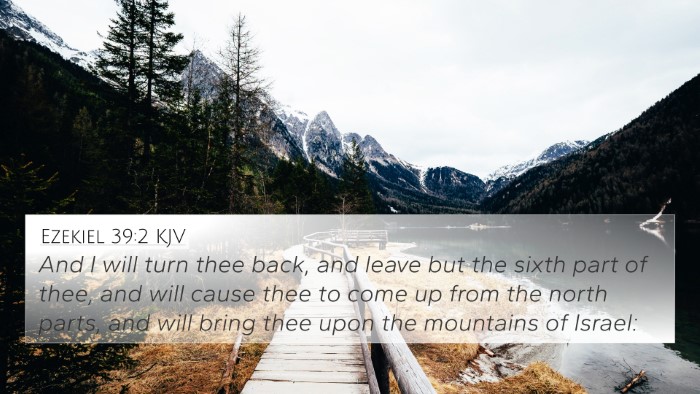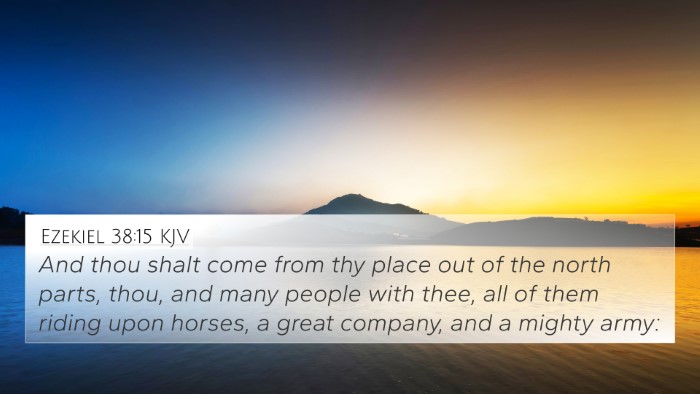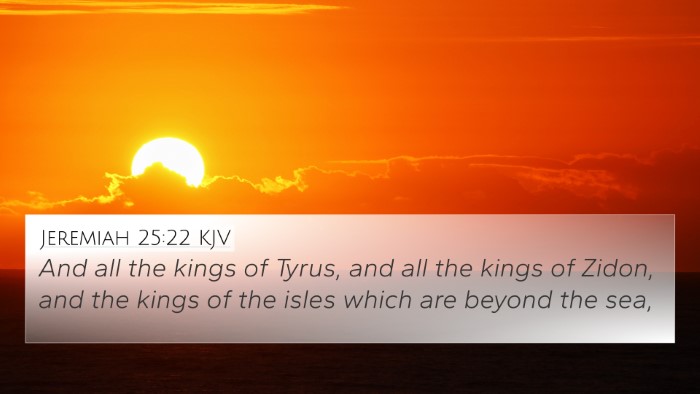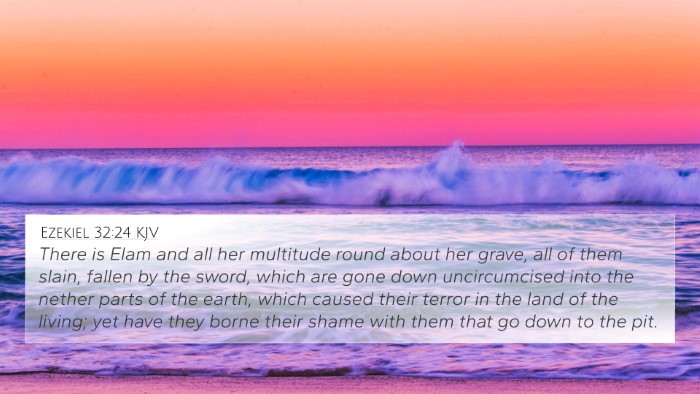Ezekiel 32:30 - Overview and Interpretation
The verse Ezekiel 32:30 states:
“There are the princes of the north—all of them, and all the Sidonians, who are gone down in slain, with the uncircumcised, which are fallen in warfare.”
This passage addresses the fate of various nations and their leaders, emphasizing their judgment and demise, particularly focusing on the consequences of sin and rebellion against God.
Meaning and Analysis
The interpretation of this verse, when examined through various public domain commentaries, reveals several key themes:
- Judgment of Nations: Ezekiel is detailing the fate of nations that stand in opposition to God’s will. Matthew Henry notes that the mention of princes signifies those who led the people astray.
- Uncircumcised as a Symbol: Reference to the 'uncircumcised' represents the Gentiles and those who are alienated from the covenant with God, as Adam Clarke explains.
- The Grave as a Leveling Ground: All these leaders are noted to have descended to death, indicating that regardless of their earthly power, they are brought low in the sight of God.
- Historical Context: Albert Barnes emphasizes understanding the historical backdrop of these nations, especially Sidon, which aligns with the broader narrative of Israel’s prophetic literature.
Connections to Other Bible Verses
Ezekiel 32:30 has various connections and parallels in the Scriptures that can enhance understanding:
- Isaiah 14:9-11: Here, the descent of the mighty into the grave parallels the theme of judgment seen in Ezekiel’s prophecy.
- Jeremiah 25:33: This suggests a similar fate for those who oppose God, which allows for comparing the judgment against nations in both contexts.
- Ezekiel 30:4: Relates to the impending destruction of Egypt and its allies, underlining a theme prevalent throughout Ezekiel's messages.
- Lamentations 2:10: Highlights the leaders mourning as a sign of destruction, reflecting upon the response to their fall.
- Ezekiel 28:17: This verse discusses pride and downfall, emphasizing the consequences of hubris in leadership.
- Psalms 9:17: This verse states that the wicked shall return to the grave, reinforcing the ultimate end of those who oppose God's decree.
- Revelation 20:15: Addresses the final judgment, connecting the fate described in Ezekiel with eschatological themes of destiny and condemnation.
Thematic Connections
Several broader themes emerge from Ezekiel 32:30, relevant for study and contemplation:
- The Sovereignty of God: The judgment of nations illustrates God’s ultimate authority over all peoples and rulers.
- Accountability of Leaders: The text stresses that leaders are not above God's law and will face consequences for leading their people into sin.
- The Fate of the Wicked: Similar to other biblical texts, it reaffirms that evil will not endure forever but is subject to divine justice.
Cross-Referencing Methodology
For those seeking deeper insight through Bible verse cross-references, utilizing tools and methods for cross-referencing can greatly enhance understanding:
- Consult a Bible concordance to identify related passages.
- Engage in a cross-reference Bible study by comparing verses thematically.
- Use a comprehensive Bible cross-reference system to locate parallels systematically.
- Explore inter-biblical dialogues by identifying similarities between the Old and New Testaments.
Conclusion
In summary, Ezekiel 32:30 serves as a poignant reminder of God's justice concerning nations and leaders alike. The connections to other Scriptures further enrich the understanding of God's sovereign will amidst human action, encouraging deeper reflection on how themes of judgment and accountability resonate throughout the Bible.
